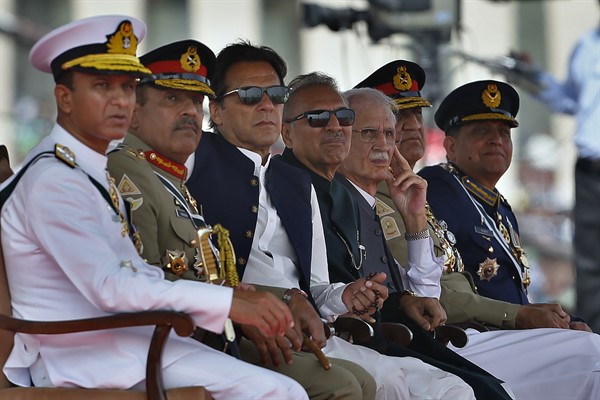Addressing a security forum in Islamabad on Saturday, Pakistan’s army chief of staff, Gen. Qamar Javed Bajwa, condemned Russia’s war in Ukraine in no uncertain terms, describing it as an “invasion” and “aggression against a smaller country that cannot be condoned.”
These statements would be uncontroversial had they not contradicted the official position of Pakistan’s civilian government, which is in the midst of a political crisis that also involves the army. Indeed, Pakistan’s ongoing political turmoil—which has seen Prime Minister Imran Khan avoid a vote of no confidence through questionable parliamentary maneuvers, as his coalition and party fracture amid pressure from the opposition—is as much about foreign policy as it is about domestic politics.
On Feb. 24, Imran Khan became the first Pakistani prime minister in almost 23 years to make a state visit to Russia, hoping to finalize an agreement over a vital gas pipeline project that has been years in the making. The timing, though, was momentous for another reason: Earlier that day, Russian President Vladimir Putin had announced the start of the invasion of Ukraine. Days later, Pakistan—along with China, India and dozens of other countries—abstained from voting on the United Nations General Assembly resolution condemning the Russian invasion.

